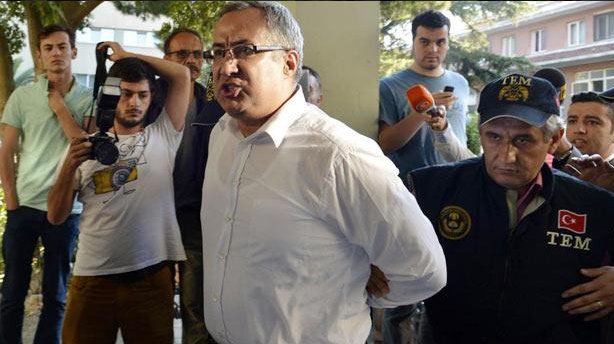Daughter of Jailed Police Chief Expresses Fears Over Father’s Safety
Daughter of an imprisoned police chief expressed fears over her father’s safety in prison after a series of suspicious deaths of former high-level officials and bureaucrats in jail.
One suspicious death after another in Turkey’s prisons placed families of imprisoned police chiefs and important figures in a state of limbo, with genuine fears over the wellbeing of their beloved ones in unfavorable and punishing conditions that befell the victims of purge and political crackdown both before and after the 2016 coup attempt.
The death of a judge, a former member of Council of Judges and Prosecutors (HSYK), and then a key intelligence chief in his prison cell only fueled fears about the safety of high-ranking officials who served in upper echelons of security bureaucracy and judiciary and who have been imprisoned pending trial.
Against this backdrop, Esra Atayun, the daughter of Yurt Atayun, former chief of Istanbul Police Department Counterterrorism Unit who had been purged four years ago and who has been in jail pending trial for the same amount of time, came with a video in a plea to the outside world to raise awareness of the danger awaits her father and others.
#yurtatayun #thenumberofsuspiciousdeathsinturkishprisoncells #Unitednations #europeanunion #thecouncilofeuropa @hrw @HelsinkiComm @UNHumanRights @CoE_HRightsRLaw @UN_HRC @HRC @amnesty @amnestyusa @UNPOL @aforgutu pic.twitter.com/1TiXZ3d0Fp
— YURT ATAYÜN (@yatayun) July 3, 2018
“My father has been unfairly imprisoned for four years. And in the last six months, he has been in a prison cell,” Atayun said in her video call.
In Turkey, the number of suspicious deaths in prison cells are increasing by the day. And I’m extremely worried about the safety of my father and my loved ones,” she added, reflecting a widely-shared mood triggered by the death of Zeki Guven, a former intelligence officer who took part in critical positions during his service before his eventual dismissal and arrest this May.
On Sunday, Guven was found dead in his prison cell in Ankara Sincan Prison. Authorities claimed that he died of heart attack. But critics have dismissed that statement as a cover-up the real cause of his death and harbor strong suspicion over a potential execution given Guven’s possible knowledge of some dirty operations carried out by the government in the past.
“So my question is how many more deaths there will be before somebody takes notice,” the worried daughter said in her plea. “I call out to the United Nations, European Union, the Council of Europe and all human rights organizations to pay special attention to the situation in Turkish prisons right now,” she concluded.
The government has either dismissed or suspended or detained more than 160,000 public workers and citizens. More than 50,000 people, including police chiefs, judges, prosecutors, diplomats, teachers and ordinary civilians, have been imprisoned without due process in the aftermath of a failed coup in 2016.
Human Rights Watch and Amnesty International documented rampant claims of torture and mistreatment in prison after in-depth interviews with dozens of former inmates and families of imprisoned people.
The authorities’ interpretation of the state of emergency removes essential safeguards that protect rights of prisoners during the emergency rule. A prisoner can be held in police custody up to 30 days without being referred to court, and cannot have access to legal defense before 7 days.
A detainee’s talk with a lawyer is recorded and takes place in front of a police or guard. Conditions in prison are much more limited and restricted. And claims of abuse and torture are rampant.
As recently as Friday, the United Nations’ Special Rapporteur on torture, Nils Melzer, said that measures taken in Turkey after the July 2016 had created an “environment conducive to torture.”
“Testimonies received from inmates and their lawyers suggest that in the days and weeks following the failed coup torture and other forms of ill-treatment were widespread,” he told media members in Ankara.




Comments are closed.